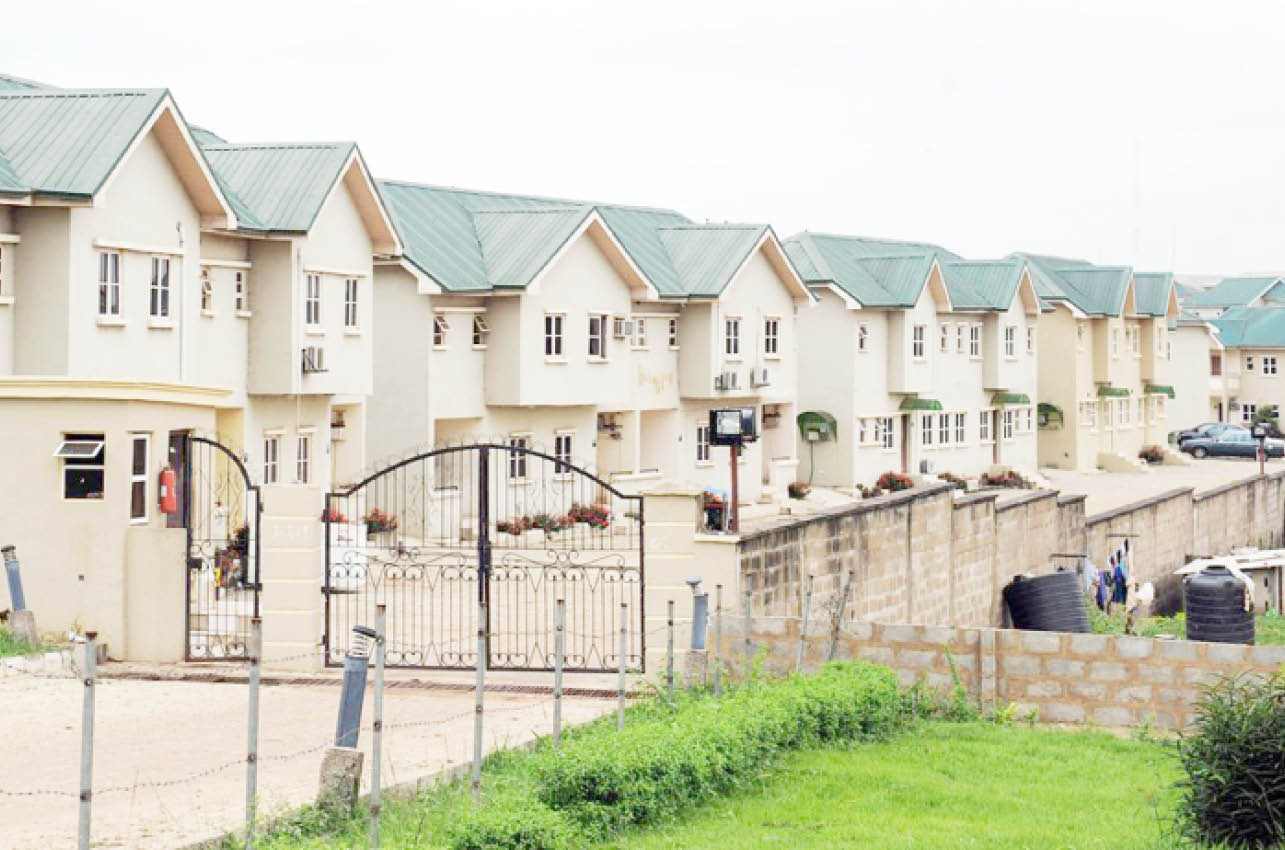This is not the best of times for mortgage subscribers across the country who are currently bearing the brunt of high interest rate which has jerked up their monthly contribution with many firms allegedly repricing their interest, findings by Daily Trust on Sunday have revealed.
Investigations by our correspondent showed that with the inflationary trend and the high cost of building construction, many mortgage firms were compelled to adjust their interest which is impacting on many subscribers.
- Group trains 56,394 women business owners
- How angry father maimed 2-month-old baby for disturbing his sleep
Mostly affected are subscribers with Primary Mortgage Institutions (PMIs) and commercial banks that had to adjust their principal in line with the inflationary trend and the high interest rates.
Daily Trust reports that the Central Bank of Nigeria (CBN) had jerked up the interest rates thrice in 2022 alone.
It first raised the rates to 13 per cent in May, 14 per cent in July and 15.5 per cent in October, the highest ever since 2006.
With this, it means subscribers paying monthly for mortgage would have to pay more in servicing the housing loans.
“I used to pay N90,000 monthly when I started but I now pay N150,000 monthly,” a subscriber with a PMI told our correspondent on the condition of anonymity.
It was further gathered that the principal interest on housing loans from commercial banks has been adjusted from 24 per cent to 26 per cent.
“The implication is that if you are paying a certain amount monthly based on the terms negotiated with your mortgage firm, it means you have to pay more,” said a worker with one of the commercial banks.
Besides, experts say the cost of building construction has also impacted negatively on pricing of housing units.
A foremost real estate investment firm, Northcourt, in its 2022 Real Estate Half Year Market Review indicated that the cost of building materials rose between 14 to 55 per cent in the last one year.
According to the report, 50kg cement rose from N3, 500 last year to N4000; 9-inch block from N280 to N320; Aluminium Roofing Sheet (0.55mm) from N3,800 to N4,500; Cables (6mm/Coil) from N34,200 to N52,000, among other materials affected by the galloping inflation.
This, experts say, has put pressure on developers and mortgage operators to adjust terms of agreement especially in cases where the housing units are yet to be delivered.
The Bank of Industry recently estimated that Nigeria has a 29 million housing deficit which would require N21trn funding to bridge.
Amidst the increasing deficit, the existing home owners are not finding it easy owing to the repricing of the loans by mortgage operators.
But operators said the recent approval of guidelines by the National Pension Commission (PenCom), allowing Retirement Savings Account (RSA) holders to access 25 per cent of their savings for residential mortgages would go a long way in cushioning the effect of galloping inflation on subscription.
Group CEO, Global Property & Facilities International Ltd, Dr. MKO Balogun, said mortgage institutions are adjusting not for the construction costs but inflation which he described as a global trend.
He said, “I am not sure mortgage institutions are adjusting for construction costs, but yes for inflation, which is a global trend. However, the recent PENCOM policy allowing subscribers to use their pension contribution to offset mortgage will go a long way.”
The CEO of SmallSmall Technology, a Property Tech Startup, Tunde Balogun, described the current situation as unfortunate, saying it is not easy on both the subscribers and mortgage banks.
He said, “For the banks, they are mostly affected by the cost of funds. Mortgage banks in Nigeria are not as liquid as commercial banks, in fact the majority don’t have capacity to self finance because they don’t have direct savings deposit products like their counterparts. So, they largely depend on internal funding from government bodies such as Federal Mortgage Bank and Nigeria Mortgage Refinancing Corporation or external bodies such as Africa Development Bank and International Monetary Fund.
“Some mortgage banks even source their funds from private organizations at higher cost. For mortgage subscribers, sadly, they bear the brunt when there is an economic downturn. High inflation reduces purchasing power and brings disposable income to almost zero or negative for most households.”
Balogun stated that while mortgage is supposed to be a long-term instrument for home financing, typically 20-30 years with single digit rate in most developing and developed countries, Nigeria’s mortgage system is still at double digits which is priced too high.
“Our mortgages are double digits, which means a 15 to 20-year mortgage financing would have eaten the value of the asset 3x by the time you’re done paying off. That is a very high-risk endeavour. It is the reason Nigeria has one of the lowest mortgage penetration in the world, less than 1 percent, and we also have one of the lowest home ownership penetrations in the world, less than 15 percent.”
“My position with using mortgage as a financing instrument in Nigeria has always been a short-term approach; pay off the mortgage within five years. This will still be my advice to mortgage subscribers right now, if you have the means, even if it will require that you sell other assets, pay off the mortgage as quickly as possible in order to retain some value on the asset.”
Former President of the Nigeria Institute of Building (NIOB), Kunle Awobodu, stated that it was unfortunate that rising inflation and naira devaluation has made projection a “failure” in the real estate world.
According to him, when subscribers went into property business with the hope of owning a property at certain rates but along the line, as the construction is progressing, high inflationary trend would make the initial subscription meaningless.
“If they are to pay in a 10-year term, the pace at which the naira is fluctuating might affect the expected returns. So, the interest rate now expected from the subscribers might have to be adjusted. Everything boils down to instability in the economy.
“Most of these funders have stable currencies but our own naira, within a few months, the value is not stable. So that affects projection and the issue of interest rate, the CBN is not helping matters. The CBN is under severe pressure because of scarcity of dollars and scarcity of foreign exchange.”
He also said the recent release of guidelines by PENCOM for mortgage subscribers to use part of their pension savings is a major decision that would ease pressure on both the subscribers and mortgage operators.

 Join Daily Trust WhatsApp Community For Quick Access To News and Happenings Around You.
Join Daily Trust WhatsApp Community For Quick Access To News and Happenings Around You.

